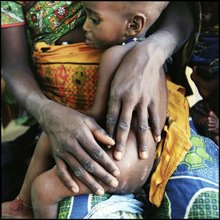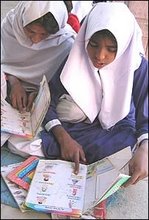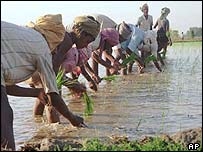PREAMBLE: This is our second annual review, offered at the beginning of New Year 2009 because we reserved our December 2008 issue to celebrate the 5th anniversary of Pacific Health & Development Sciences (PacificSci).
THREE LEADING ISSUES FROM 2008:
Flowers or Fertilizer?
1. GLOBAL STEWARDSHIP: There can be little debate that the leading issue in this category is the global economic crisis. In the latter half of 2008, the world faced an unprecedented near-collapse of its banking systems, ushering in a global recession.
Fertilizer: We assign the prime responsibility for this catastrophe jointly to political leadership in the United States in concert with the greed, negligence and corruption of its financial industry. This does not take the inaction and practices of other countries off the hook, as consequential national and global failures are documented extensively elsewhere, especially in Europe. Clearly, no country (rich or poor) has been spared, and it will take many years for individuals, families, communities and societies as a whole to recover from this crisis of greed, neglect and incompetence. Perhaps needless to say, the necessities of life and the social fabric of all countries e.g, health and educational systems, secure food supply, clothing and shelter depend on integrity in our financial systems. Trust must be restored in those systems.
Flowers: Out of this morass some good is emerging, and in this regard we note the leadership of UK Prime Minister Gordon Brown, who put forward a 5 point plan to galvanize the world financial community around new principles. Implicit in the “Brown Doctrine” is an analysis of what is so seriously wrong with the world financial order. It forms a clear case for supra-national supervision of international finance, which clearly cannot any longer be left to the caprices of any one country. The key features of the Doctrine are presented below (2008 as we observed it) from our October 2008 issue.
2. INTERNATIONAL DEVELOPMENT
In this category we draw attention to the work of a World Health Organization (WHO) Commission on the Social Determinants of Health, released in August 2008, chaired by Sir Michael Marmot. In releasing the report in August, WHO Director-General Dr Margaret Chan stated: "Health inequity really is a matter of life and death,…but health systems will not naturally gravitate towards equity. Unprecedented leadership is needed that compels all actors, including those beyond the health sector, to examine their impact on health. Primary health care, which integrates health in all of government's policies, is the best framework for doing so." It does not seem appropriate to allocate “flowers” to the Commission itself, as this would be like “applauding the messenger”. Instead, we now draw attention to their mention of a few countries for addressing inequities:
Flowers: “Some low-income countries such as Cuba, Costa Rica, China, state of Kerala in India and Sri Lanka have achieved levels of good health despite relatively low national incomes”. Wealth alone therefore does not determine the health of a nation's population. But, the Commission points out, wealth can be wisely used: “Nordic countries,… have followed policies that encouraged equality of benefits and services, full employment, gender equity and low levels of social exclusion”. Also “the feasibility of action is indicated in the change… already occurring. Egypt has shown a remarkable drop in child mortality from 235 to 33 per 1000 in 30 years. Greece and Portugal reduced their child mortality from 50 per 1000 births to levels nearly as low as Japan, Sweden, and Iceland. Cuba achieved more than 99% coverage of its child development services in 2000.”
Fertilizer: This can be applied to a large number of nations for whom "health gradients" within countries are persistent or even deteriorating. Examples: Life expectancy for Indigenous Australian males is shorter by 17 years than all other Australian males. In Indonesia, maternal mortality is 3–4 times higher among the poor than the rich. The adult mortality differential between least and most deprived UK neighbourhoods is more than 2.5 times. Child mortality in Nairobi slums is 2.5 times higher than in other parts of the city. A baby born to a Bolivian mother with no education has 10% chance of dying, while one born to a woman with at least secondary education has a 0.4% chance. In the US, 886 202 deaths would have been averted between 1991 and 2000 if mortality rates between white and African Americans were equalized. In Uganda the death rate of children under 5 years in the richest fifth of households is 106 per 1000 live births versus 192 deaths per 1000 live births in the poorest fifth (almost one in five)…; set this against an average death rate for under fives in high income countries of 7 deaths per 1000.
Comment: All too often our political “leaders”, more interested in short term gains (“looking good”) than in real change, respond to such information with fatuous, even pontifical comments, without intending to deal with the underlying causes. This is worse in some countries than in others, and there is even greater cause for concern wherever relevant social indicators are slipping: deteriorating infrastructure, lack of measurable gains in access to health care and quality education, return of previously controlled preventable diseases (e.g, gastroenteritis, dengue fever), crime of various sorts (often related to mismanaged economies and related poverty), corruption and related trends towards authoritarian politics ignoring the fundamentals of human rights.
3. HUMAN RIGHTS ABUSES
At time of writing, over a thousand people, mostly innocent civilians, have been killed in Gaza by hi-tech Israeli military attacks since mid December 2008, virtually 100 times the number of Israeli casualties (mostly military, including “friendly fire”). In alleged retaliation for Hamas rocket attacks, in themselves a crime under international humanitarian law, this disproportionate and collective punishment of the Palestinian people can only be viewed as an atrocity of far greater magnitude.
In the meantime, long standing legitimate Palestinian grievances continue to be ignored by Israel and by the so-called “international community”.
Apologists for Israel are quick to note the horrific atrocities elsewhere in the world over the past year, such as in the Sudan and the Congo, and complain that their conflict attracts disproportionate condemnation. Israel thereby claims to occupy higher moral ground in its conflict with the Palestinians; yet the facts remain that people driven out of their ancestral land, penned up in refugee camps, impoverished and colonized by settlements on land that many recognize as theirs, also have the right to self-determination.
Flowers: Six international humanitarian NGOs: Amnesty International, Christian Aid, CAFOD, CARE, OXFAM, Save the Children, Trocaire; for documenting the situation in the Gaza as “the worst since the 1967 war between Israel and its neighbours” (March 2008).
Fertilizer: Israel, and through their support for its actions, the US and Canada. The US has funded and armed Israel to become the most powerful military force in the Middle East, on land, sea and air (Gaza has no military capacity, hence the asymmetry of home-made rockets). Canada, once a fair minded country, meanwhile has adopted an almost totally one-sided posture in support of Israel (under the minority government of Stephen Harper). It remains to be seen whether the incoming Obama administration will be more even-handed than its predecessor, given the power of the Israeli lobby on this continent.
With supporters like this, should Israel really be compared with Sudan or the Congo? Or should it be given the same scrutiny as the Balkans, and be referred urgently to a war crimes tribunal?
Comment: It is difficult to see where this is going and who is intended to benefit from the continued stand-off between these two peoples. What are the motivations behind the attacks? There is surely more to this than home-made rockets, especially in the context of unresolved injustices. There is potential here for an even wider regional conflagration. For a world only now starting to emerge from the Bush-Blair distortions of information to prosecute the disaster in Iraq, we must remain alert to the advice of Edmund Burke:
All that is needed for the forces of evil to succeed is for enough good men to remain silent.
2008 AS WE RECORDED IT
January: WORLD DEVELOPMENT CALLS FOR INVESTMENT IN AGRICULTURE 2008 The World Development Report 2008 (linked) calls for greater investment in agriculture in developing countries. This annual World Bank report warns that the sector must be placed at the center of the development agenda if goals of halving extreme poverty and hunger by 2015 are to be realized: While 75% of the world’s poor live in rural areas in developing countries, a mere 4% of official development assistance goes to agriculture; In Sub-Saharan Africa, a region heavily reliant on agriculture for overall growth, public spending for farming is also only 4% of total government spending and the sector is still taxed at relatively high levels; GDP growth originating in agriculture is about four times more effective in raising incomes of extremely poor people than GDP growth originating outside the sector.
Said World Bank Group President Robert B. Zoellick: “At the global level, countries must deliver on vital reforms such as cutting distorting subsidies and opening markets, while civil society groups, especially farmer organizations, need more say in setting the agricultural agenda.”
In this issue we focused on Malawi as a Case Study of the role of new subsidies to enhance agricultural production, despite decades of donor proscription not to subsidize, and take note of a World Trade Organization investigation into the use by the United States of truly massive trade-distorting farm subsidies in violation of international commerce rules.
February: CANADIAN POLITICS TRUMPS NUCLEAR SCIENCE, HEALTH AND SAFETY This issue draws attention to the apparent disregard for nuclear safeguards recently revealed by Canada’s minority Conservative government. This failure to respect the independent role of the Canadian Nuclear Safety Commission puts into question whether Canada takes nuclear safety seriously. For a synopsis of this episode, we paraphrased and updated the core content of a January 2008 article in The (Toronto) Star by Walkom (acknowledged). Further down, we summarized a report from the Canadian Medical Association Journal that revealed the manipulative attitude of the Canadian medical isotope industry, paraphrased from a CTV News report. The main story is how Canada’s government put politics ahead of public health and safety. Clearly there are questionable commercial and political practices in Canada at present.
March: HUMANITARIAN SITUATION IN GAZA WORST IN FOUR DECADES This issue features a report recently released by six international humanitarian NGOs (Amnesty International, Christian Aid, CAFOD, CARE, OXFAM, Save the Children, Trocaire), documenting the situation in Gaza as the worst since the 1967 war between Israel and its neighbours. The deterioration can be attributed mostly to the period since mid-2007 when Israel imposed a blockade. For "balance", we cite two reports from Israeli media; we also recognize that – like Canadians and their government –the views of all Israelis are not necessarily reflected in the policies of their government.
Canadian Complicity: This report should be of particular concern for Canadians, especially because Canada (under the minority Conservative government of Stephen Harper) is the only member country to vote against a recent United Nations Human Rights Council motion calling for immediate international action to force Israel to allow fuel, food, medicine and other essential items to be sent to the Gaza Strip, to reopen border crossings and to end its “grave violations” in the occupied Palestinian territory.
April: SEX RATIOS DESTABILIZING IN ASIA “Sex ratio” (SR) refers to the ratio of males to females (M:F) in a population. We focused on this topic because dramatic shifts in sex ratio are taking place in some parts of the world that reveal cultural preferences and social practices favoring the birth/survival of one sex over the other (more often favoring males over females). Other factors influencing the sex ratio of societies include: changing composition by ethnicity and race; civil unrest or warfare; large-scale immigration e.g., male labourers unable to travel with their families; ecological factors eg contaminants in environment; variables affecting mother’s health eg social status, smoking, nutrition, access to support networks.
May: THE GLOBAL ARMS TRADE – An Atrocity? To find out who shares responsibility for global militarization, follow the money trail. Regardless of attempts to legitimize the trade, the historical reality is that bribery, corruption and mercenary as well as national self-interest lie at the heart of the trade. The arms industry is unlike any other. It operates without regulation. It suffers from widespread corruption and bribes. And it makes its profits on the back of machines designed to kill and maim human beings.
So who profits most from this murderous trade? The five permanent members of the UN Security Council—the USA, UK, France, Russia, and China. Together, they are responsible for 80% of reported conventional arms exports. “We can’t have it both ways. We can’t be both the world’s leading champion of peace and the world’s leading supplier of arms.” Former US President Jimmy Carter, presidential campaign, 1976.
June: HEALTH CARE IN CANADA – An Essay: A public consultation on health care, called the Conversation on Health, took place during 2007 in the Canadian province of British Columbia. Our firm made a written submission, and in this issue we took the opportunity to transform the core of this into an overview of Canada’s health care, on the premise that this may be of global interest.
NOTE: The essay is written for the Canadian context, so we caution that Canada’s model is NOT readily translatable to most other countries. However, it may be a viable option for economically developed ones that still lack universal coverage. We reserve the right to change our views on any aspect of this essay; in this sense it is as a work in progress.
July: CHILD SOLDIER INCARCERATED IN GUANTANAMO BAY This month we depicted the situation of a Canadian youth held at the offshore US prison camp at Guantanamo Bay, Cuba, a site selected by the US military for detention of “enemy combatants” so as to circumvent the normal jurisdiction of US laws and to exert military control over due process.
The background on Guantanamo Bay itself is instructive. The US assumed territorial control over this Cuban region under the 1903 Cuban-American Treaty, which granted the US a perpetual lease. The Cuban government today considers the US presence to be illegal, arguing that the Treaty violates Article 52 of the 1969 Vienna Convention on the Law of Treaties, which declares a treaty void if its conclusion has been procured by the threat or use of force in violation of international law. Article 4 of the document, however, states that the Convention shall not be retroactively applied.
August: SELECTED WEB RESOURCES ON GLOBAL HEALTH with an acknowledgement to ProCOR This issue highlights some of the work of an organization we respect for its efforts to bring together a virtual community of health professionals from around the world. ProCOR is devoted to examining health and related social issues of relevance to developing countries, with particular reference to cardiovascular diseases. ProCor's monthly "Resource Update" (edited by Juan Ramos) highlights relevant materials. A recent Resource Update on ProCOR listed a number of websites that offer valuable information about health and/or health resources around the world. Selections are made from this list in order to further disseminate ProCOR’s efforts in this regard, as well as to draw attention to the health communications work of ProCOR.
September: THE SOCIAL DETERMINANTS OF HEALTH In this month we drew attention to the work of a World Health Organization (WHO) Commission on the Social Determinants of Health, released in August 2008, chaired by Sir Michael Marmot.
In releasing the report in August, WHO Director-General Dr Margaret Chan stated: "Health inequity really is a matter of life and death,…but health systems will not naturally gravitate towards equity. Unprecedented leadership is needed that compels all actors, including those beyond the health sector, to examine their impact on health. Primary health care, which integrates health in all of government's policies, is the best framework for doing so."
October: GLOBAL ECONOMIC CRISIS, FINANCIAL REFORMS & “THE BROWN DOCTRINE” British Prime Minister Gordon Brown outlined a five-point program on October 14, 2008 to reform the world’s financial system, and serve as a basis for a new set of global institutions to replace those that have governed international finance since 1944. The 5 principles (for elaboration see the October issue) are: Transparency, Integrity, Responsibility, Tighter Regulation, and New Institutions.
The new system of banking cooperation will need “a new international financial architecture for the Global Age”. New institutions will provide “an effective global early warning system for the world economy, to alert us to the risks at hand”, and “globally accepted standards of regulation” and the cross-border supervision of global corporations.
November: CAN OBAMA RESTORE THE WORLD’S TRUST IN AMERICA’S IDEALS? We dedicate this issue of PacificSci Global Perspectives to Senator Obama’s political victory, and wish him whatever success is achievable in his efforts to turn around the abysmal situation faced by the US following the Bush 2 administration’s widespread failures in global and domestic vision, leadership and management. There are challenges on every front: economy, health, education, security, restoration of democratic and human rights principles in the US itself (including closing Guantanamo Bay, and rejecting torture), and not least rebuilding the nation’s reputation.
December: PacificSci – FIFTH ANNIVERSARY OF A BUSINESS VENTURE WITH A SOCIAL PURPOSE In this issue we examine the emergence of fourth sector organizations as virtually inevitable: breaking with earlier relationships between the state, the private sector and the voluntary sector, operating outside the world of grants, and inside the economic requirement of surviving as a business, the bottom line is one of social purpose: a modern renaissance of motivation to improve the human condition.
AND A HAPPY NEW YEAR!
We extend to readers our best wishes for 2009, with hopes that the serious challenges facing the world in 2008 and other recent years will be better understood and managed going forward. For this to happen we all need better political leadership. PacificSci will continue to offer an independent view of trends and events.
FROM a Great Canadian and World Statesman
"A great gulf... has... opened between man's material advance and his social and moral progress, a gulf in which he may one day be lost if it is not closed or narrowed..."
Lester B Pearson
http://nobelprize.org/nobel_prizes/peace/laureates/1957/pearson-lecture.html
Wednesday 14 January 2009
Subscribe to:
Posts (Atom)
INSPIRATIONAL WELCOME ............................... from T.S.Eliot's "Little Gidding"
If you came this way From the place you would come from... It would be the same at the end of the journey...
If you came, not knowing what you came for, It would be the same... And what you thought you came for Is only a shell, a husk of meaning... From which the purpose breaks only when it is fulfilled If at all.




















